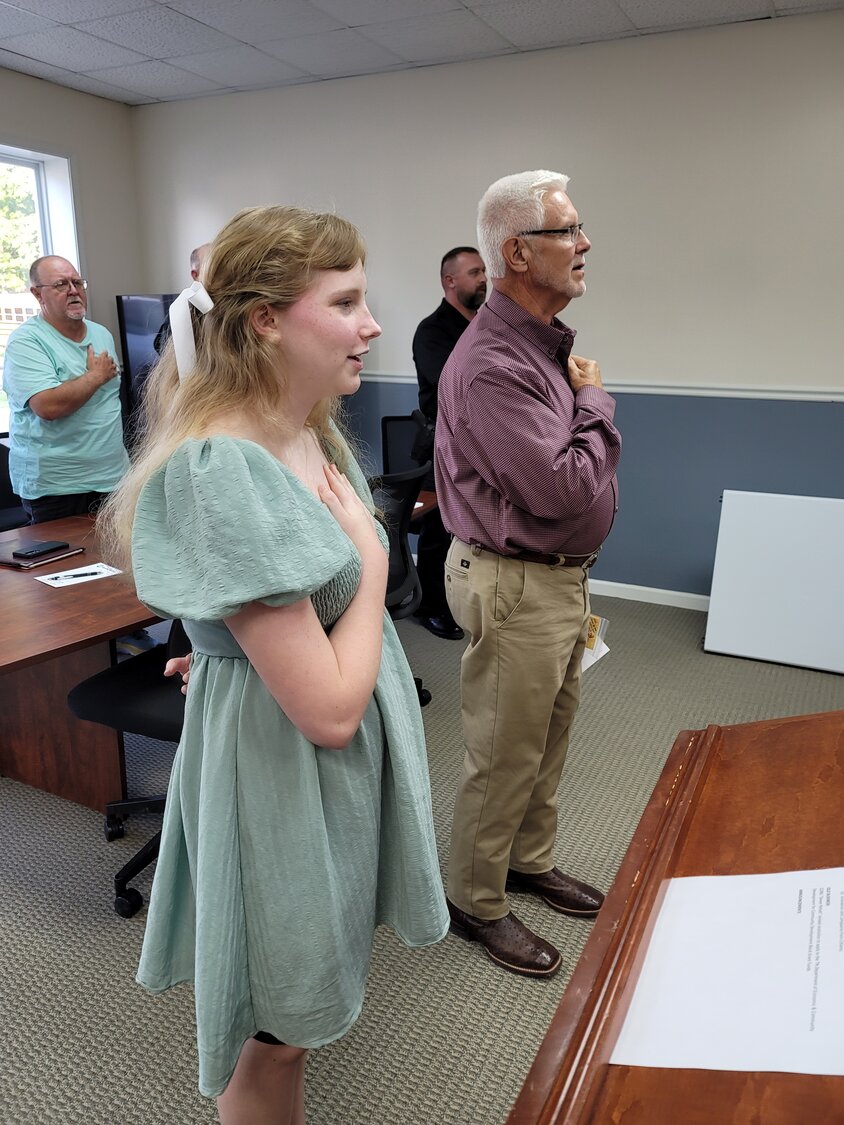Tennessee River Basin Authority to Drain Gleason’s Ditches Free of Charge, TDEC and EPA Mandates Water Pipe Material Testing
Gleason mayor Charles Anderson informed the board of aldermen at the July meeting during new business that the city’s ditches are in bad shape and that he had been concerned about the issue for the past three and a half years.
Anderson made contact with Northwest Development who encouraged him to invite the Tennessee River Basin Authority to survey the city’s drainage ditches. After surveying the ditches, they saw that the ditches were covered in undergrowth and trees.
“There's never any money in the budget for that kind of thing and it's just been put off and put off and put off. So now we have an opportunity to get something done about it,” Anderson stated.
The Tennessee River Basin Authority have pledged to start work with their 16-foot wide machine that gets down inside the ditch, the bottom of the ditch and that they will do all they can to clean out the widest ditches in town free of charge.
The start date will be somewhere at the end of August, early September and members from The Tennessee River Basin Authority will be present at the August board meeting to explain the process in more detail as well as where the worst spots are.
“So I welcome this work. I hope y'all do too. We can't be any worse off than we are now. So, look forward to this. It's a major cost savings to the city, for taxpayers, and I'm anxious to see this work get done,” Anderson stated.
Anderson also informed the board that TDEC and the EPA have state mandated that each town in the state identify water pipe material.
“Flint, Michigan had an issue with lead pipes in their water system. So, a lot of lawsuits and so forth. So, Tennessee is being proactive, about that not happening in Tennessee,” Anderson stated.
It will be up to the homeowner to replace that pipe if it’s made of material other than plastic. If the city service line material contains lead, the city will be required to replace their part of the material.
The deadline on this report is October 16th of this year
There's a possibility that the state may come back and require the city to replace anything, even on the customer side, but that has not yet been decided.
“We're going to comply with the state and TDEC's request. We put this off for a while, knowing this had to be done, and didn't know how we were going to do it. With the manpower we have, because it is time consuming. Now, the contractor for the electronic water meters is BAM II. They were way low on the bid, and the only one that did bid it,” Anderson stated.
BAM has been going through town and placing blue flags by every meter so that they can locate them easily.
“So, we're going to start doing some of that work for us in conjunction with the water meter replacement,” Anderson explained.
A contract was signed by the city to pay for the cost of up to no more than $5,000.
If lead pipe is discovered and the homeowner refuses to replace the pipe, the state could potentially force cities to stop service until a replacement is purchased and installed.






